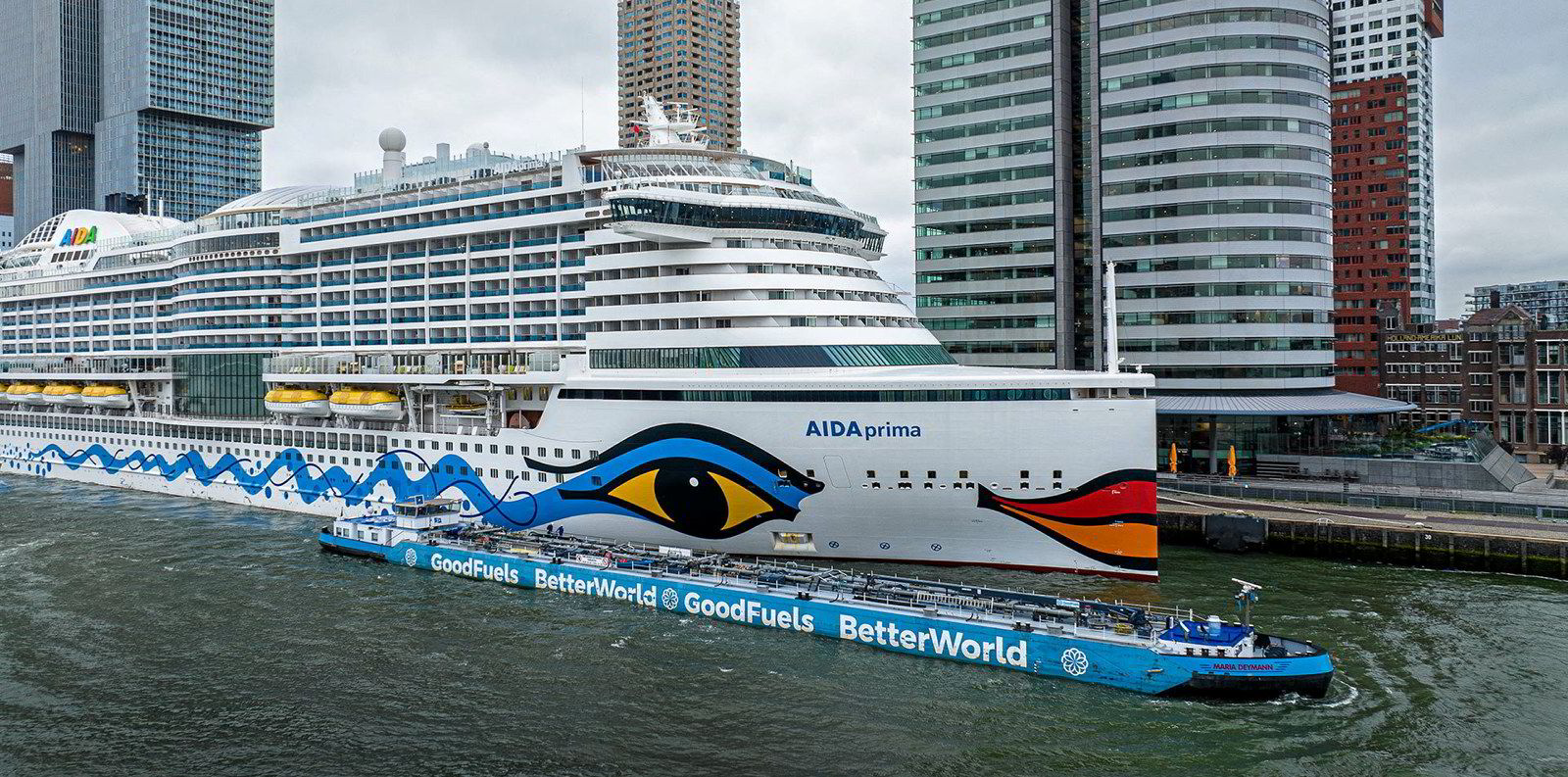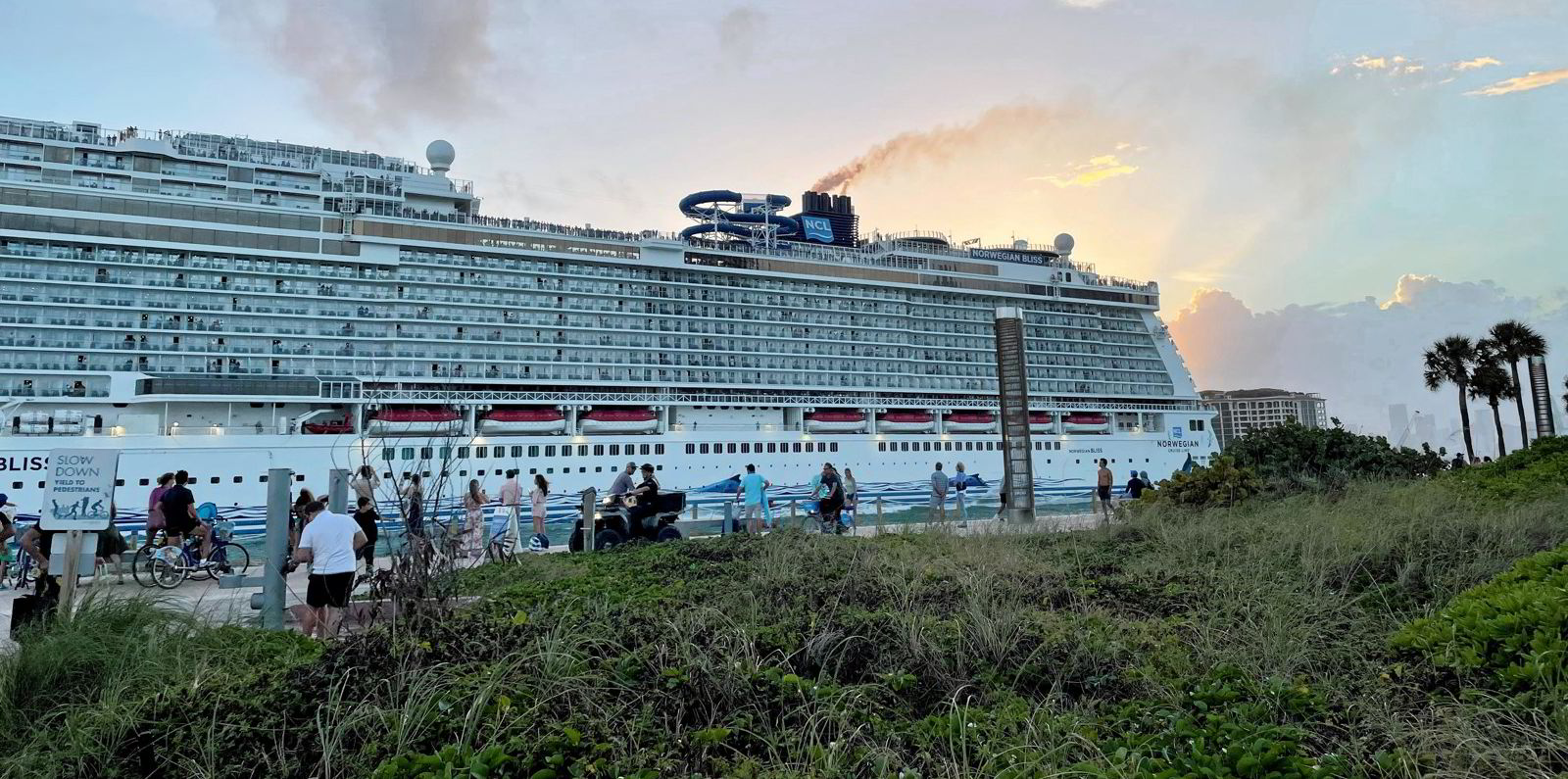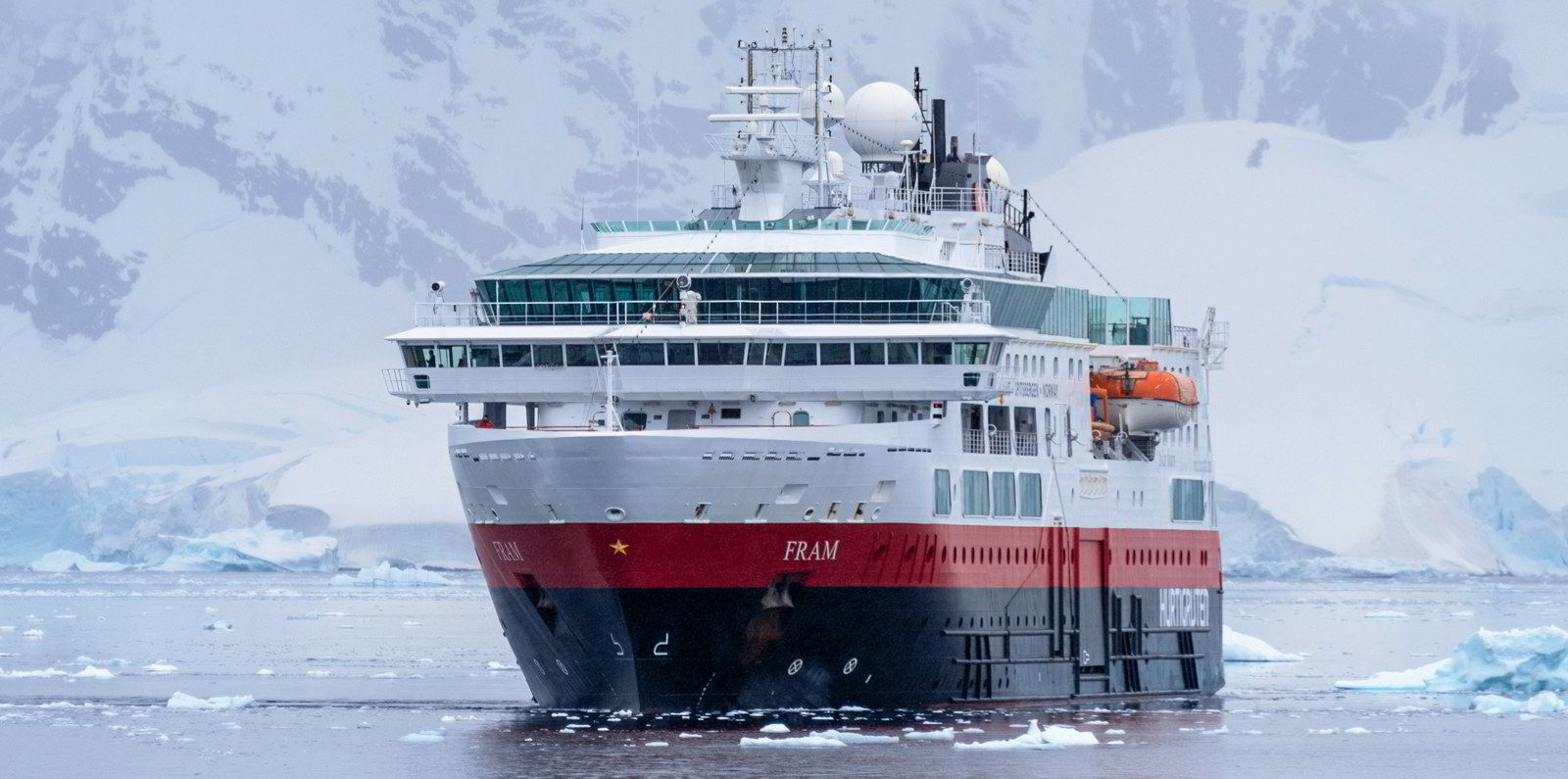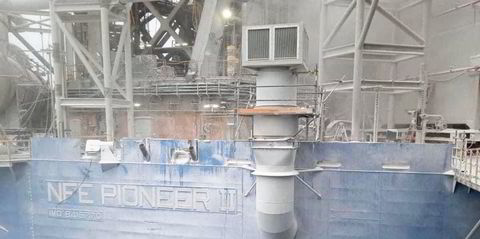The cruise industry must stop burning toxic heavy fuel oil as it sails its ships around the globe, according to a German environmental group.
The Nature and Biodiversity Conservation Union (NABU) issued lacklustre grades to a dozen cruise ship companies in this year’s edition of its annual survey released on Wednesday.
“It seems out of step with the times that the majority of large ships continue to sail with the particularly toxic but cheap heavy fuel oil,” NABU chief executive Leif Miller said in the ranking.

“The industry must finally phase it out. This is also demanded by more than 20,000 people who have signed our appeal to abandon heavy fuel oil.”
Norway-based Havila Voyages and Hurtigruten were both ranked the highest out of 13 operators surveyed, scoring 64% out of a possible 100% on implementing climate and environmental protection measures.
“Even though there are initial announcements that promise more climate-friendly operations, even the frontrunners Hurtigruten and Havila from Norway with nine out of 14 possible points in the ranking are still far away from environmentally-friendly cruises,” NABU said.
Aida Cruises — Carnival Corp’s German brand — and French operator Ponant achieved a score of 50%, while seven operators scored below 50% on NABU’s survey.
Carnival, the world’s largest cruise line with nine brands, scored the lowest on the survey at 18%.
TUI Cruises, MSC Cruises, Norwegian Cruise Line Holdings, Royal Caribbean Group, Hapag-Lloyd Cruises and Marella Cruises fell within 25% and 40% on the poll.
“On the positive side, no company can afford not to take measures to reduce emissions — the midfield of the ranking is moving closer together,” NABU said.
Switzerland-based Viking Ocean Cruises and Germany-based Phoenix Reisen were sent the survey, but they did not respond to it. Calls to shipowners in the ranking were not immediately returned.
NABU said Ponant and TUI Cruises, which is 50% owned by Royal Caribbean Group, implement carbon-cutting measures almost exclusively on new ships, but it praised Norwegian and TUI for ordering newbuildings that will run on green methanol.
“It is very welcome that the first companies have finally found a way towards more climate neutrality,” NABU shipping expert Sonke Diesener said in a statement. “Now the pace must pick up and find many imitators.
“However, in order to play its part in achieving the Paris climate targets, the industry must drastically reduce emissions in the short term. In fact, however, they continue to rise.”
He said LNG-borne methane emissions, which are more than 80 times more harmful to the climate than CO2, have risen sharply in the industry.
“Those who speak of a bridging technology here are turning a blind eye to the manifold problems of LNG, to fracking that is harmful to nature, and to methane as a climate killer,” he said.

“In addition to LNG, biofuels are also not suitable.”
Connecting some ships to shore power has helped to reduce carbon emissions, but all passenger vessels must be able to use this form of power while idling in ports, NABU chairman Malte Siegert said.
“The EU’s decided requirements for the use of shore power are most welcome,” he said, noting new shore-power facilities in the German cities of Hamburg, Rostock and Kiel.
“There is no excuse anymore for those who keep their engines running in the port,” he said. “These ships must be denied entry.”





